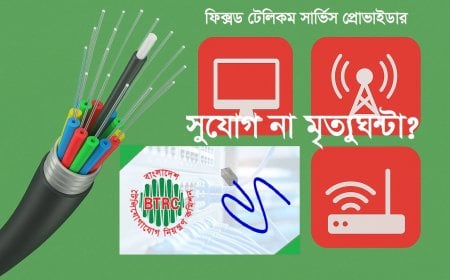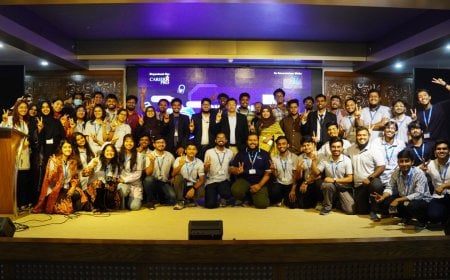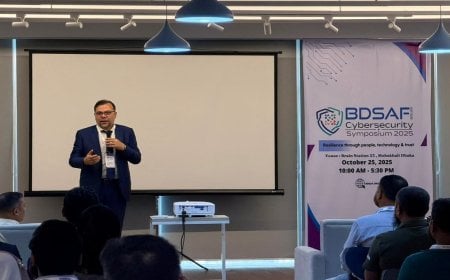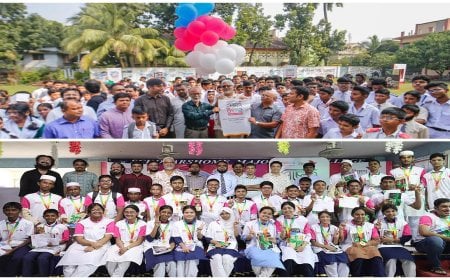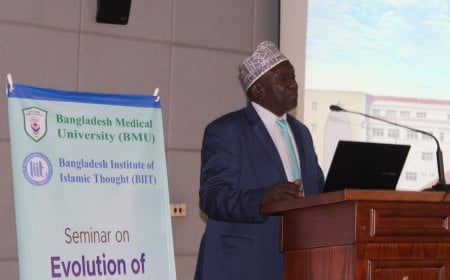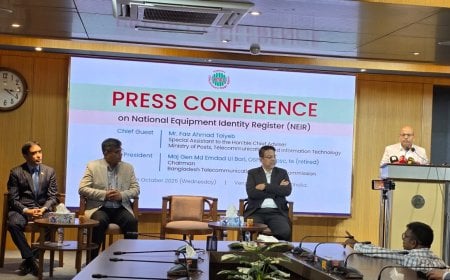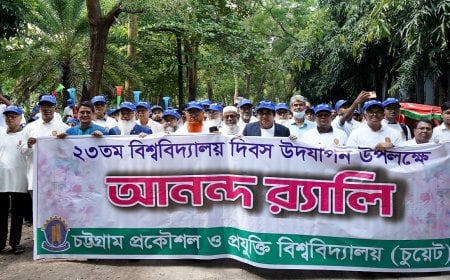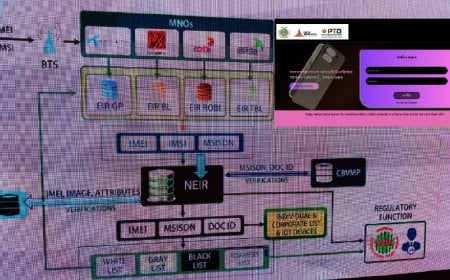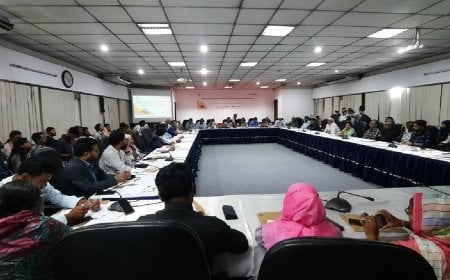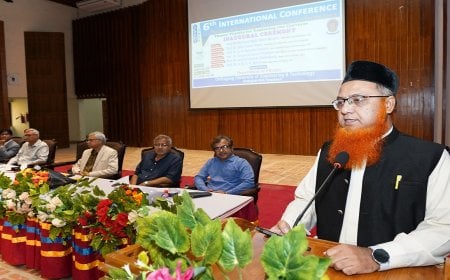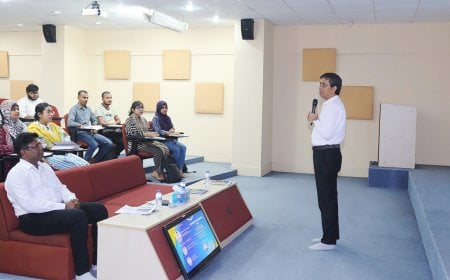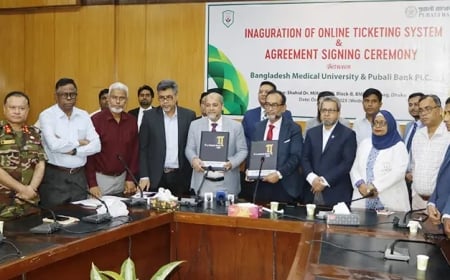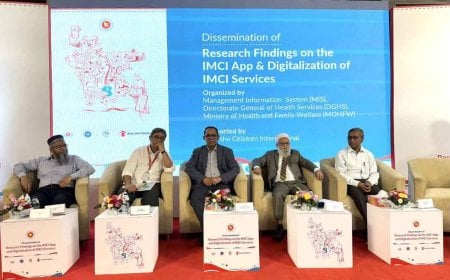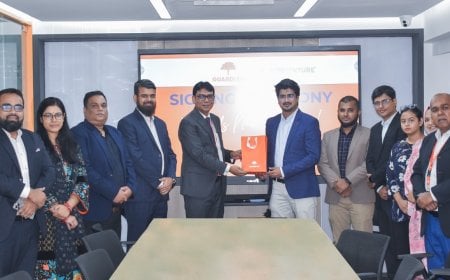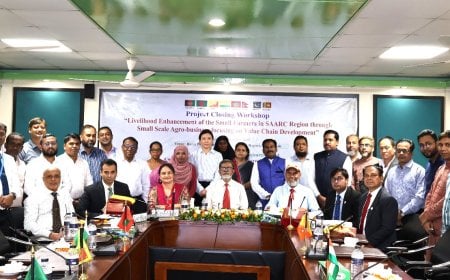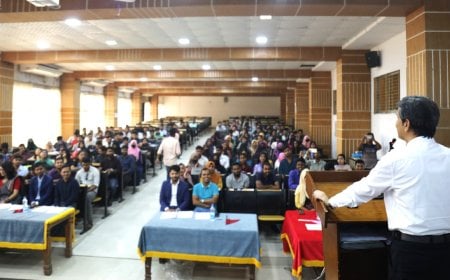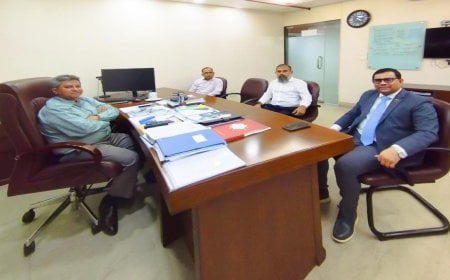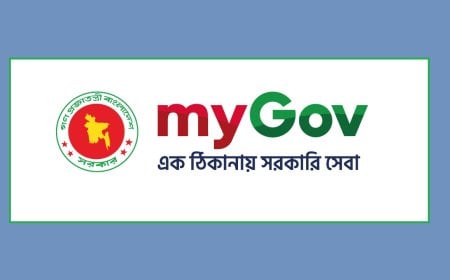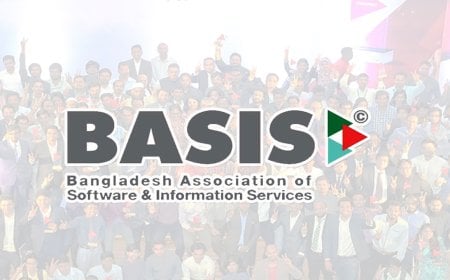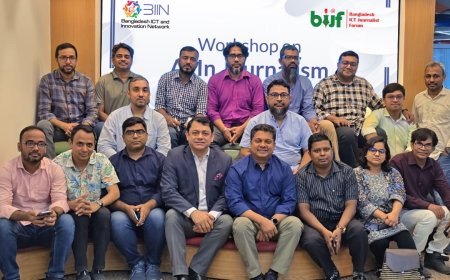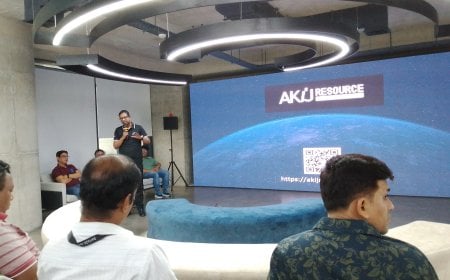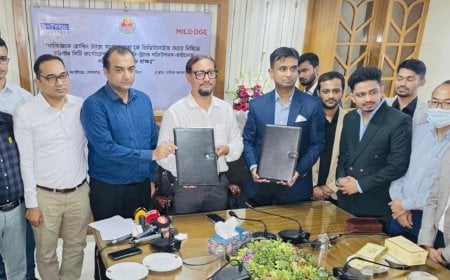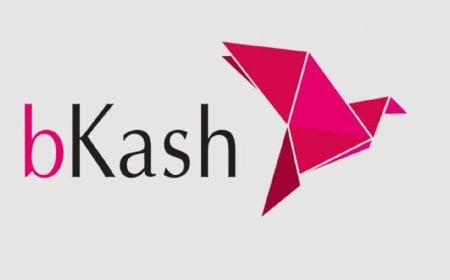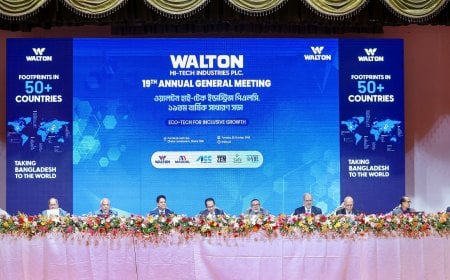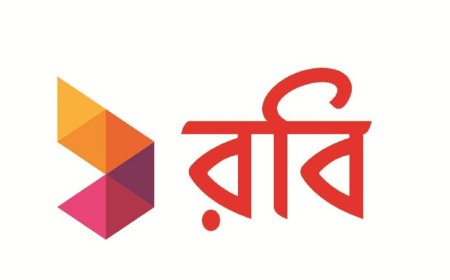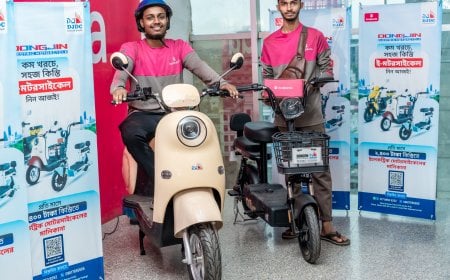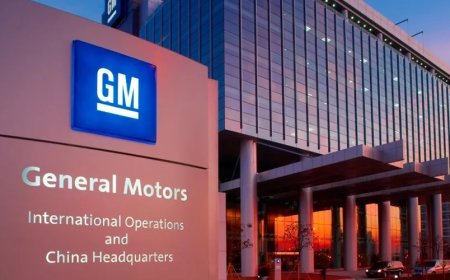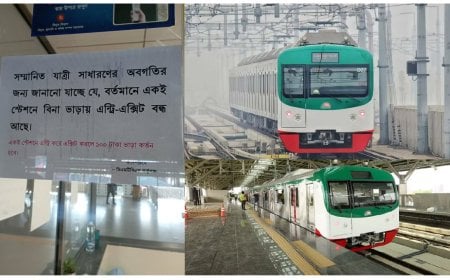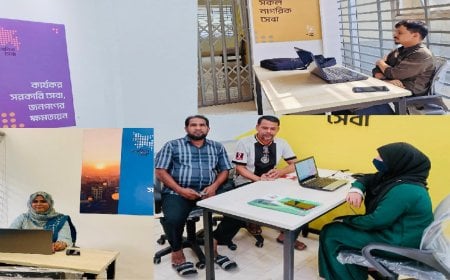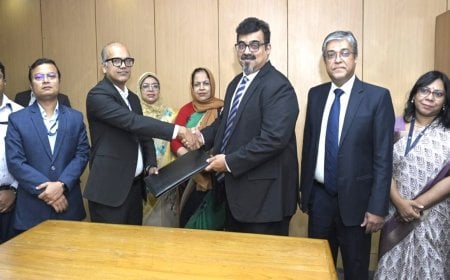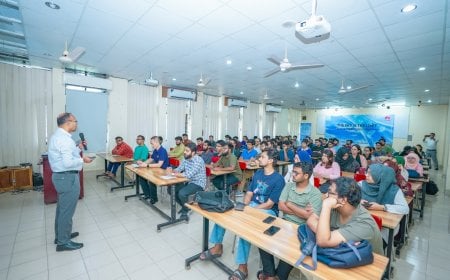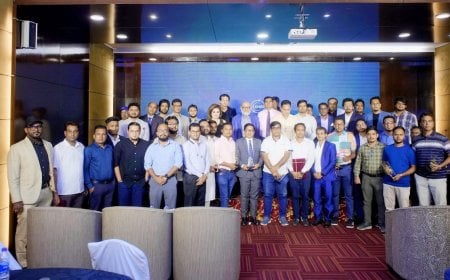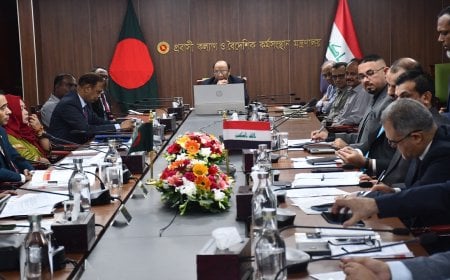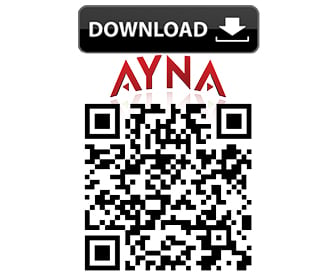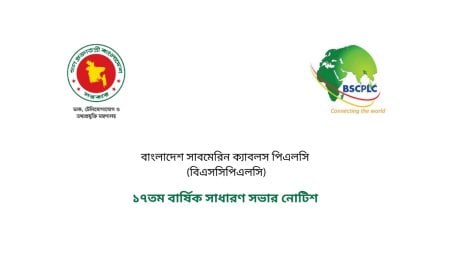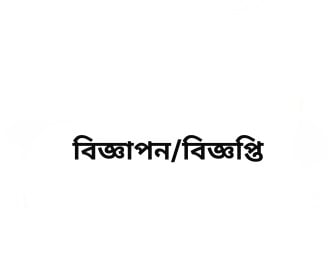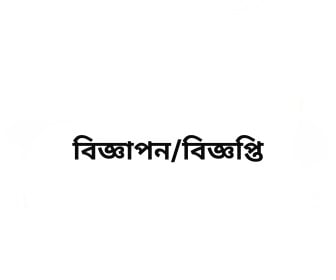Tech, Telecom, and Trade: Mixed Reactions to Bangladesh's 2025–26 Proposed Budget

The proposed national budget for the fiscal year 2025–26 has drawn mixed reactions from stakeholders in the technology and telecommunications sectors of Bangladesh. While the budget proposes some tax reliefs, others have expressed concern over increased VAT and supplementary duties that could impact consumers and small-scale entrepreneurs.
The proposal includes a partial rollback of the VAT exemption previously granted to domestically manufactured mobile phones. VAT for hardware manufacturers has been increased from 5% to 7.5%. For mobile operators, the turnover tax has been reduced from 2% to 1.5%. While the withholding tax on internet services has been halved from 10% to 5%, the 20% supplementary duty on SIM cards remains unchanged. In addition, the budget proposes a 10% supplementary duty on online streaming and OTT platforms.
Meanwhile, the VAT exemption period has been extended for the production of refrigerators, air conditioners, elevators, motor vehicles, and electric vehicles. However, for marginal farmers and small entrepreneurs, income up to BDT 500,000 will remain tax-free, despite the non-extension of tax holidays set to expire on June 30.
Business leaders from the ICT and telecom sectors have voiced disappointment, arguing that increased business-level taxes and duties will ultimately burden consumers. While corporate businesses might benefit, small and cottage industry entrepreneurs are left without significant support.
Prices of set-top boxes, refrigerators, air conditioners, and hybrid vehicles are expected to rise due to increased VAT. The VAT rate on commissions from online sales has been increased by 10 percentage points, which is likely to raise the cost of online purchases. Additionally, the proposed increase in minimum values for customs assessment of women’s cosmetics may put pressure on e-commerce entrepreneurs who deal in these products. Higher import duties on LED bulbs and similar items are expected to make electronics more expensive. However, rural entrepreneurs dealing in earthenware and leaf-based utensils may see some benefits from reduced prices. The e-waste recycling sector may also gain due to a 1.5% reduction in the withholding tax on raw material supplies for recycling.
Despite the lowered withholding tax on internet services, the benefit is unlikely to reach consumers in marginal areas.
In an immediate reaction, Syed Almas Kabir, former president of the Bangladesh Association of Software and Information Services (BASIS), said,
|
|
“Reducing AIT on the internet is a good decision. It will help ISPs to improve service quality. However, increasing VAT on online sales from 5% to 15% will discourage online shopping. E-commerce buyers will be inclined toward unregulated Facebook-based commerce, resulting in revenue loss for the government. While ICT budget allocation has increased compared to the revised budget of last year, proper project execution and regular audits are necessary. The grant for research and development is a positive step, but BDT 166.6 million for 492 projects is insufficient. Companies should be given tax rebates to encourage R&D spending, which would, in turn, fund universities. The formation of a BDT 1 billion fund for young entrepreneurs is commendable, but previous startup funds were not fairly invested.” |
Aminul Hakim, president of the Internet Service Providers Association of Bangladesh (ISPAB), told DigiBanglaTech,
| “Until now, we have paid 10% advance corporate tax, which effectively translated into a 36.36% pre-profit income tax. As a result, a BDT 100 million capital would reduce to BDT 70 million. After long discussions, the proposed budget finally cuts the withholding tax on internet services from 10% to 5%. However, we are unaware of any reductions in taxes or VAT on other equipment. Although corporate entities might benefit slightly, the budget offers little for small and medium entrepreneurs and brings no significant relief for marginal consumers.” |
|
Regarding the proposed duty on OTT platforms, ISPAB senior vice-president Saiful Islam Siddique said,
| “Only a few local OTT platforms have emerged. The 10% supplementary duty on online streaming and OTT services will put them at a disadvantage against foreign platforms. Despite their popularity, the government earns little from foreign OTTs. The duty will promote foreign platforms while burdening viewers of local services like Chorki, whereas users of platforms like SonyLiv will remain unaffected. This duty adds a new burden on the digital content industry. To foster the growth of the local OTT industry, initial exemption from such duties is essential.” |
|
Md. Ziaul Alam, CFO of Walton Hi-Tech Industries, said,
|
|
“The proposed budget raises VAT in many areas, increasing the prices of fridges, air conditioners, lifts, and more. This will pressure consumers and may reduce market demand, leading to a potential decline in revenue rather than an increase.”
|
Ziauddin Chowdhury, country manager of Xiaomi Bangladesh, remarked,
|
|
“I don't think the reduction in VAT exemption for mobile handsets will impact consumers. It may slightly reduce manufacturers’ profits, but this isn't significant. Most mobile handset makers add about 30% in value, and the cost to reach consumers is not very high. So, the impact at the business level should also be negligible.” |
Former senior vice-president of e-CAB, Sahab Uddin Shipon, stated,
|
“The e-commerce sector will once again face challenges. The budget includes several tax hikes that will directly affect entrepreneurs, sellers, and buyers. If implemented, the VAT on commissions will triple from 5% to 15%. This will increase financial pressure on online businesses, reduce sellers’ profits, or force them to charge customers more.” |
|
Tanvir Ibrahim, president of the Bangladesh Association of Contact Center and Outsourcing (BACCO), said,
| “The budget proposal does not appear ICT growth-friendly. This sector has not received adequate attention, even though all other industries now rely on ICT in some form. We need a greater focus on this sector, making internet and digital devices more affordable and allocating specific funds for expanding the BPO industry.” |
|
AKM Fahim Mashroor, a member of the interim government's task force for an inclusive, sustainable, and dynamic economy, CEO of Bdjobs, and former BASIS president, said,
|
|
“We have long demanded lower internet costs and withdrawal of the SIM tax to reduce the cost of mobile phones and data. However, the proposed budget fails to do that. With a 20% supplementary duty on SIMs still in place, there is no scope for internet cost reduction at the consumer level. Moreover, the partial rollback of VAT exemptions on mobile handset production, extended till June 30, 2027, will raise the prices of locally assembled devices. The duty on OTT platforms will strain domestic services, and the increased VAT on online platforms will reduce consumer interest. As a result, online trade may shift toward Facebook-based models, failing to ensure protection for domestic entrepreneurs.” |
Mohammad Zahurul Islam, incoming president of the Bangladesh Computer Samity (BCS) and managing director of Smart Technologies (BD) Ltd., commented, “
|
|
There is a proposal to raise VAT for hardware manufacturers from 5% to 7.5%. This will have minimal impact on the sector. However, we have yet to find significant good news in the SROs.” |
Javed Akhter, president of the Foreign Investors Chamber of Commerce and Industry (FICCI), expressed concern,
|
|
“The proposed 7.5% additional tax on publicly traded companies that have issued less than 10% of their shares through IPOs is worrisome and seems discriminatory. The introduction of a 7.5% advance tax for commercial importers—who no longer need to pay VAT if their local value addition is below 50%—will simplify VAT compliance but may raise costs if value addition is low. Increasing VAT on online sales from 5% to 15% threatens the sustainability of online businesses and may hinder their expansion. The requirement to maintain digital records of sales and purchases through ERP systems without hard copies is a positive move toward digitization. It will reduce paperwork, enhance efficiency, and simplify data storage and retrieval.” |





